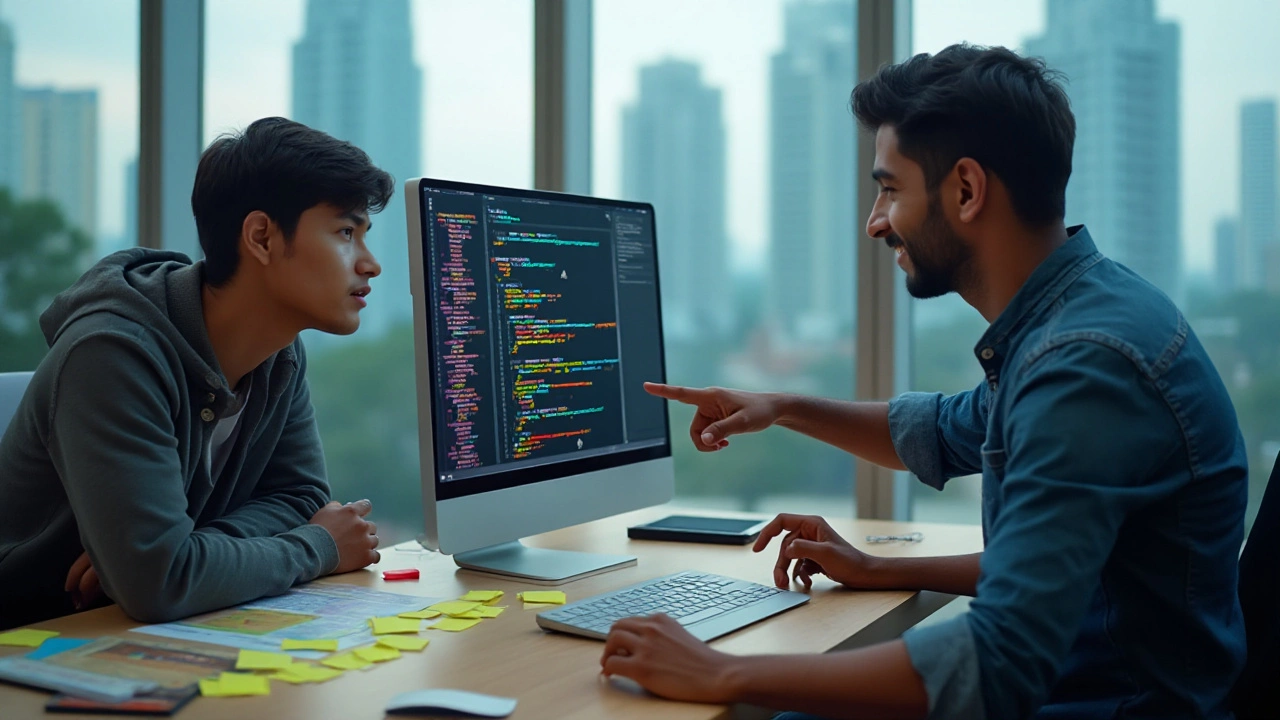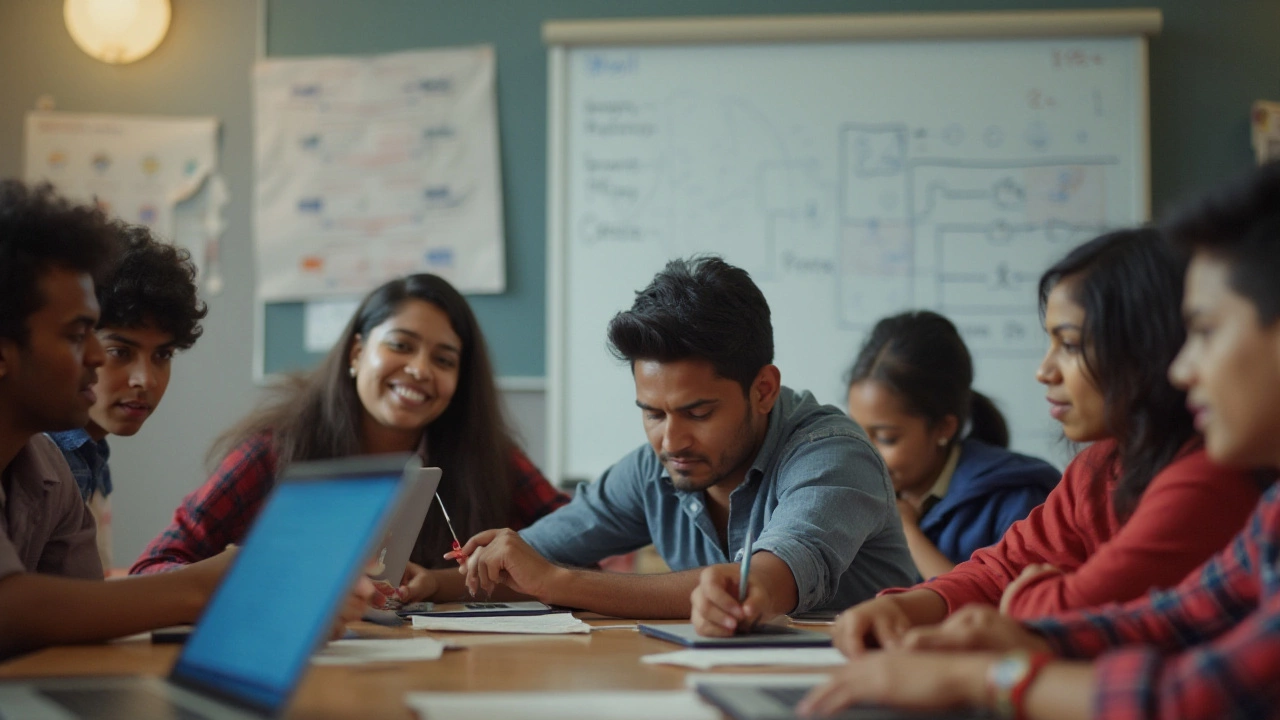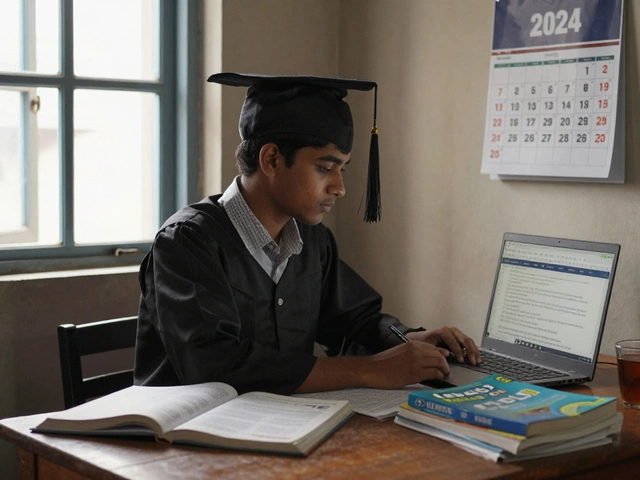Coding is a skill that's as rewarding as it is challenging, and gaining proficiency requires more than just a basic understanding of a programming language. The road to becoming a coder is filled with obstacles that test one's patience and drive, requiring more than just an understanding of syntax.
One of the hardest things to learn in coding is how to think logically. Unlike humans, computers operate on a strict set of instructions and predictability, so developing an ability to think in a structured and logical way is crucial. This can be particularly challenging for those who are not accustomed to sequential and analytical thinking.
Errors, or bugs, are an unavoidable part of the coding process, and learning how to efficiently debug code is a vital skill that often intimidates beginners. Mastering the debugging process allows coders not only to find mistakes but also to understand the language better.
Lastly, effective problem-solving skills are essential in coding. This involves breaking down complex problems into smaller, more manageable parts to work through logically. The satisfaction of solving these puzzles is one of the joys of coding, even if getting there can be tough work.
- Understanding the Basics of Coding
- Overcoming Logical Thinking Barriers
- Tackling Syntax and Language-Specific Challenges
- Mastering Debugging Techniques
- Building Problem-Solving Skills
Understanding the Basics of Coding
Diving into the world of coding can feel akin to learning a new language, and in many ways, that's exactly what it is. The foundation of coding starts with understanding the syntax and grammar of programming languages, which can be surprisingly different from natural languages. Much like learning a language, where you start with the alphabet, coding begins with understanding basic terms like variables, loops, and conditionals. Getting comfortable with these fundamentals is vital as they are the building blocks on which all complex programs rest.
There is an intriguing rhythm to coding. For beginners, learning to think algorithmically is a big leap. This involves breaking down tasks into sequences, and tackling them logically and systematically. Initially, it might seem daunting as logic isn't the primary mode of thinking for many. However, with practice, you start thinking in terms of 'if-then' statements naturally. As you iterate over tasks, testing different outcomes, you learn the importance of patience and persistence. Quite often, solving a problem isn't about coming up with a single great idea but rather refining many smaller ones toward coherence.
"Everyone should learn to code because it teaches you how to think." – Steve Jobs
A pivotal aspect of coding is learning about data structures and their importance in programming. Arrays, lists, and dictionaries aren't just abstract concepts; they play a critical role in how efficiently programs perform tasks. Understanding the basics involves recognizing how these structures impact memory usage and execution speed. The choice of data structure can drastically affect the program's performance, and selecting the proper one is tantamount to solving half the problem. Such decisions, although easily overlooked in the beginning stages, become second nature as you delve deeper into the world of programming.
Another essential factor is learning how to write clean and understandable code. Writing code that not only works but is easy to read and maintain in the future is a skill in itself. This means following best practices like using meaningful variable names and including comments that explain parts of the code. These practices might seem like chores at first—you might think, "Who needs comments? I understand my code just fine!"—but the reality is your future self or fellow collaborators will benefit immensely. This skill becomes increasingly important as projects grow in size and complexity.
To absorb the basics thoroughly, having a hands-on approach is vital. Theoretical knowledge is necessary, but coding is a craft best learned by doing. Engaging in small projects and experimenting with different solutions is one of the most effective ways to internalize fundamental programming concepts. Engagement leads to deeper understanding, with each bug and error message an opportunity to grow more skilled in problem-solving. There are numerous online resources, from coding challenges to full-fledged courses, tailored to various learning styles and skill levels. These repositories of wisdom also allow for peer interaction, which is indispensable for honing collaborative skills.
When you look back on the initial days of coding, the unfamiliar code editors and strange-sounding terms no longer seem intimidating. The journey from uncertainty to mastery is gradual, and every line of code you write is a step forward. The challenges faced in understanding the basics of coding lay a foundation that strengthens with each project undertaken, preparing you for the more advanced concepts that lie waiting in the shadows. Embrace the challenges with eagerness, for they are the stepping stones to proficiency and creativity in the world of programming.
Overcoming Logical Thinking Barriers
Transitioning into the realm of coding often presents a unique challenge that transcends language syntax—cultivating a robust logical thinking ability. For many aspiring programmers, especially those without a background in mathematics or formal logic, this can be a steep learning curve. Logical thinking in programming is about breaking down complex problems into manageable parts, an essential skill when embarking on the coding journey. Every program is essentially a puzzle, and solving it requires the coder to piece together small, logical steps into a coherent solution.
Research shows that maintaining a structured approach can ease this transition. By applying well-known problem-solving methodologies, such as the "divide and conquer" technique, coders learn to tackle intricate issues more effectively. This method involves dividing a problem into smaller, more manageable chunks, solving each independently, and then integrating the results. Such systematic approaches nurture the type of logical thinking required to excel in coding.
"Programming is not about typing, it's about thinking." - Rich Hickey, creator of the Clojure programming language.
Immersing oneself in puzzles and logic games outside of coding can also build these critical skills. Games like chess or Sudoku engage the brain in patterns and sequences, laying the groundwork for logical reasoning. Educational platforms often employ interactive coding puzzles that foster logical skills in an engaging manner. Websites like Codewars or LeetCode present programming challenges that encourage users to apply logic and creativity to solve problems.
A practical trick to bolster logical thinking is to verbalize your thought process while coding. This method, known as "rubber duck debugging," involves explaining code aloud, as though you are teaching it. By articulating your logic and approach, you can identify gaps in reasoning or uncover errors more easily. Even seasoned professionals use this technique to refine their problem-solving strategies. It reveals the nuances that might be overlooked when merely writing or reading code silently.
Integrating Critical Thinking Skills
Coding is as much about asking the right questions as it is about finding solutions. Asking "why" and "how" at every step is crucial in developing a sound understanding of coding logic. Coders who delve into the rationale behind algorithms and data structures gain a deeper comprehension of their functions and limitations. This curiosity-driven approach leads not only to better code but also to sharper problem-solving skills.
- Reframe problems to explore different perspectives.
- Distill complex questions into simple, digestible queries.
- Consult diverse resources to gather comprehensive insights.
- Regularly review and refactor code to foster logic refinement.
In essence, overcoming logical thinking barriers in coding requires practice, patience, and a willingness to challenge one's cognitive boundaries. It is a mind-expanding exercise that, while daunting at first, ultimately transforms budding coders into adept problem-solvers capable of crafting elegant solutions with precision and creativity.

Tackling Syntax and Language-Specific Challenges
Diving into the world of programming languages can initially seem like stepping into an entirely new universe. The most visible hurdle often encountered by budding coders is mastering the syntax, which is the set of rules that define the combinations of symbols considered correctly structured for a particular programming language. Unlike in natural languages, where a misstep might still be understood within context, programming requires precision. A misplaced semicolon or an incorrect variable reference can mean the difference between a successful program and hours of frustrating debugging.
When you start with a new language, whether it's Python, Java, or JavaScript, each has its unique syntax and style. This is comparable to learning new regional dialects where, despite shared grammar, each requires attention to distinct vocabulary and idiomatic expressions. One might find Python's indentation focus starkly different from Java's strict class-based structure. Such differences need not be daunting. They can enrich a coder's perspective on problem-solving once understood.
"The art of programming is the art of organizing complexity, of mastering multitude and avoiding its bastard chaos as effectively as possible." - Edsger W. Dijkstra
In addressing these challenges, it's practical to harness the breadth of community resources available. Online courses, such as those offered by platforms like Coursera and Codecademy, often include interactive coding exercises designed to familiarize learners with the specific syntax of different languages. They usually start with small, digestible pieces of code, gradually increasing complexity. Additionally, engaging in coding forums like Stack Overflow can be invaluable. Here, asking questions and learning through collaboration with seasoned developers can demystify confusing language aspects.
When shifting from syntax to semantics, or the meaning behind code, coders often grapple with the logic that a particular programming language is designed to express. It's not just about understanding the syntax but also why a language uses certain constructs to achieve desired outcomes. Strong foundational knowledge in one language eases the transition to others, as the fundamental programming concepts remain consistent, such as loops, conditionals, and data structures.
To effectively tackle these coding challenges, maintaining a personal library of common constructs can be immensely helpful. This list can grow as one encounters new scenarios. Such reference guides act as quick lookup tools, helping bypass frequent syntactic pitfalls. Pair this with consistent practice, as regular engagement with a language anchors loose ends into a comprehensive understanding. By coupling practice with patience, learners can embrace these challenges as a journey of growth, ultimately leading to the creation of more sophisticated, error-free code.
Mastering Debugging Techniques
Debugging is an essential skill for any programmer, yet it can be one of the most daunting parts of the coding journey. From missing semicolons to complex logical errors, there is a myriad of obstacles that can cause a program to malfunction. The process of debugging involves not only identifying these bugs but also understanding their root causes and devising fixes that prevent them from recurring. It's a skill that improves with practice, patience, and, importantly, the right strategies.
One of the first steps in mastering debugging techniques is cultivating a detective-like approach. This involves scrutinizing the code meticulously while thinking critically about what might be amiss. A good start is to isolate the problematic section of the code. By methodically deactivating sections or inserting print statements, you can narrow down where the issue originates. This step-by-step process requires logical thinking, which also improves one's coding proficiency over time.
"The best way to find a bug is to create a bug lab – a controlled, narrow testing environment where you can piece through each line without distraction," suggests Jon Bentley in his book 'Programming Pearls.'
Debugging isn't solely about fixing errors; it's also about understanding why they happened. It's vital to embrace each bug as a learning opportunity. When you spot a recurring bug, take time to research and understand it deeply, consulting documentation or communities for insights and solutions. Online forums like Stack Overflow can be invaluable, offering real-world solutions from experienced programmers who have encountered similar issues.
Embracing the use of debugging tools is another great way to enhance your skills. Most Integrated Development Environments (IDEs) come equipped with sophisticated debugging tools that allow you to set breakpoints, watch variables, and step through code line by line. Becoming adept at using these tools not only saves time but also significantly enhances your understanding of program flow. Setting breakpoints strategically can help you pinpoint exactly where things are going awry and provide a clearer picture of your program's trajectory.
To put it simply, effective debugging requires a combination of methodical investigation, a learning mindset, and a tool-savvy approach. As you gain more experience, you’ll find yourself not only fixing problems more efficiently but also writing better code that minimizes bugs in the first place. Remember, every bug resolved is a step closer to mastering the art of coding.

Building Problem-Solving Skills
Problem-solving is a cornerstone of effective coding, setting apart those who understand programming languages from those who can wield them to create solutions. At the heart of software development, problem-solving demands creativity, resourcefulness, and patience, often challenging individuals to think outside the box. A good way to hone these skills is through practice and exposure to a variety of problems. Many developers recommend starting with basic algorithms and slowly working up to more complex issues. This gradual progression not only familiarizes individuals with common coding patterns but also improves their ability to logically dissect unfamiliar problems.
Adopting a structured approach is invaluable in transforming complex problems into manageable tasks. Breaking down a project into small, achievable parts can help maintain focus and prevent the overwhelming feeling of staring down at a monumental task. Seasoned programmers often start by thoroughly understanding the problem before jumping to coding solutions; this phase includes researching similar problems, collecting the necessary information, and brainstorming all possible outcomes and approaches. By utilizing this strategy, coders can avoid unnecessary frustration and dead ends.
Another important tool in developing problem-solving prowess is collaboration. Learning from peers or mentors can open up new perspectives and solutions, often revealing insights that might not be apparent in isolation. Enhanced communication skills also come into play when discussing complex ideas, making it easier to articulate thought processes and solutions. As famed computer scientist Donald Knuth once remarked,
"The real problem is not whether machines think but whether men do."His words highlight the importance of human creativity and cooperation in overcoming coding challenges.
Equally critical to the development of problem-solving abilities is the commitment to continuous learning. The tech landscape is ever-changing, with new challenges and opportunities cropping up regularly. Staying abreast of new programming difficulties and technologies equips developers with the knowledge and tools necessary to solve a broader range of problems and to do so more efficiently. Online resources, coding challenges, and hackathons can provide a lively platform for practising these skills in a dynamic environment that breeds innovation.
In essence, coding can be likened to solving a giant, ever-evolving puzzle. Each solved issue builds confidence and experience, which are vital components of a skilled coder's toolkit. Keeping a curious mind and a tenacious attitude will serve any programmer well, reinforcing their ability to tackle problems head-on. As aspiring developers build their careers, they are encouraged to embrace the complexity of modern programming difficulties, recognizing each one as a stepping stone towards mastery.





